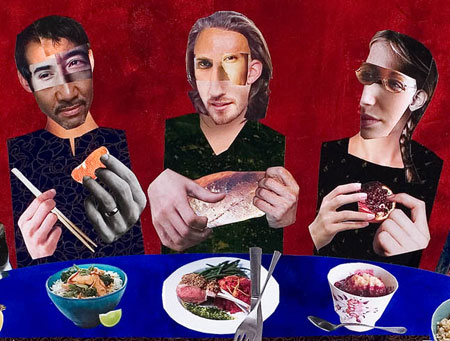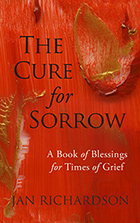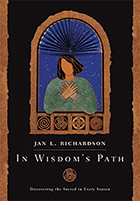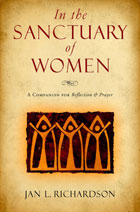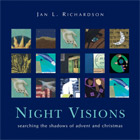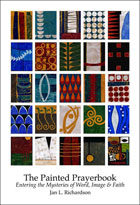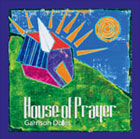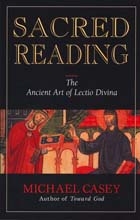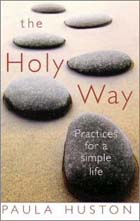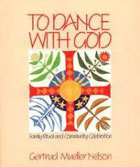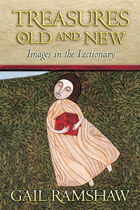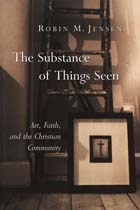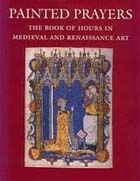Reading from the Gospels, Ascension Day: Luke 24.44-53
These days I’m at work on a new book that’s something of a sequel to the first book I wrote (if you don’t count the book about animals that I wrote and illustrated when I was about eight, in which my drawing of a horse looks very much like my drawing of a dog). Working on this sequel has set me to thinking about who I was when I was writing the first book. I began that book, Sacred Journeys, during my final year in seminary, stayed in Atlanta an extra year to work on it, and finally completed it a year and a half after moving back to Florida to take my first pastoral appointment.
The span of time I spent on that first book included one of the happiest years of my life—my final year in Atlanta—and one of the most difficult years of my life—my first year in Orlando. In Atlanta I had an amazing community. Based largely within the seminary I attended, these friends nourished and stretched and sustained me. They were part of my daily rhythm of life. They mediated the presence of Christ to me.
Leaving the community I had found in Atlanta was a source of deep grief. I knew no one when I moved to Orlando. Though I was clear this was where I needed to be, this clarity provided an incomplete comfort. I remember trying to figure out how to appear competent as a pastor and carry grief at the same time. During that first year, I received an anonymous letter (and if you’re a pastor, you know how much we love getting those letters from people who feel strongly enough to write but not strongly enough to put their name to it) from someone who suggested both that I share more about myself in my sermons and also that I use more humor. “Honey,” I thought at that point in my journey, “it’s one or the other.”
The sorrow ran its course. Time and focused work did their usual healing, and I found a new community in Orlando. Different from the one I had in Atlanta, but nourishing, creative, and amazing in its own ways: a community that reminds me of the infinite forms that the body of Christ can take in this world.
In the midst of remembering the loss of community, and the finding of one, I’ve been pondering the gospel lection for Ascension Day. Having lingered for forty days (a good biblical number) following his resurrection, during which he engaged in such acts as eating and wound-showing to demonstrate that he wasn’t a ghost, Jesus prepares to take his final leave of those who have been his companions on his earthly path. He shares his final words with them—crucial words, words of call and of promise. And then, Luke tells us, Jesus leads them “as far as Bethany,” where he will depart from them.
I am struck by Luke’s mention of Bethany as the site of Jesus’ ascension. The gospels mention Bethany a number of times. It is a place to which Jesus withdraws on more than one occasion, and we know the town most memorably as the home of Mary, Martha, and Lazarus, who are particular friends of Jesus. As the site of the raising of Lazarus and two accounts of Jesus’ receiving the gift of a woman’s anointing, Bethany stands as a place of healing, restoration of life, hospitality, and friendship. Likewise, at Bethany the fullness of Jesus’ divinity and his humanity come into sharp focus: in his raising of Lazarus, Jesus had displayed his power over death, and in his friendship with Mary, Martha, and Lazarus, he revealed himself as someone who took solace and delight in their human company.
For Jesus’ companions who witness his ascension, Bethany conjures memories that Jesus means for them to draw upon as they begin to live without him. Bethany was a place where hospitality, friendship, and the miraculous intertwined in the community around Jesus. The fact that he chooses it as his place of departure suggests that he intends for them to remember that these gifts will remain with them—and not only these gifts, but also his own spirit.
In depicting Jesus’ ascension, medieval artists often painted Jesus with only his feet showing (one can almost see his toes wiggling), just barely visible as he departs, as in the St Albans Psalter or this thirteenth-century German Psalter. They wanted to emphasize his bodily departure from the earth. Yet, as Gail Ramshaw points out in Treasures Old and New, such a depiction does not suggest that “Christ has gone away from the church. The church fathers,” she goes on to write, “taught just the opposite: that as Christ went to God, his body became available to all the church.” And not only available to the church, but also enfleshed within it and by it, a point these same medieval artists emphasize by their attention to those who remain as Jesus leaves. Though Jesus’ departure poses the risk of profound disruption among his followers, his ascension becomes an opportunity for the community not merely to reorganize and refashion itself but to become the very body of Christ in the world.
Luke writes that it is as Jesus is blessing the disciples that he begins to leave them. He does not raise his voice in a lamentation over his departure, he does not offer any further words of wisdom and instruction, he does not fling last-minute advice their way. He blesses them. Where the disciples might have been justly distraught, Luke tells us that instead they worshiped Jesus “and returned to Jerusalem with great joy; and they were continually in the temple blessing God.” Jesus’ disciples recognize that his leaving is part of his blessing. Having called them into relationship with him and one another, having lived and journeyed with them, he frees them to live into their ongoing call. They, in turn, respond to Jesus’ blessing by offering blessings of their own, in the temple and beyond. They respond to his blessing by becoming his body.
We may grieve—and rightly so—the changes and leave-takings that come with being in community. This relationship stuff is risky business. Yet Jesus’ ascension reminds us there is something deeper at work in such times, something that not only carries us through the changes but also uses them to transform us and to bless the body of Christ. In the midst of every loss and change, the presence of Christ persists, shaping his community anew and calling us to blessing and joy.
Where have you found a blessing in the midst of loss? How have you experienced—and offered—the body of Christ among the changes in your life? Having received the blessing of Christ, how do you offer a blessing in return?
May you journey, along with those first disciples, with great joy and blessing.
[To use this artwork, please visit this page at janrichardsonimages.com. Your use of janrichardsonimages.com helps make the ministry of The Painted Prayerbook possible. Thank you!]

